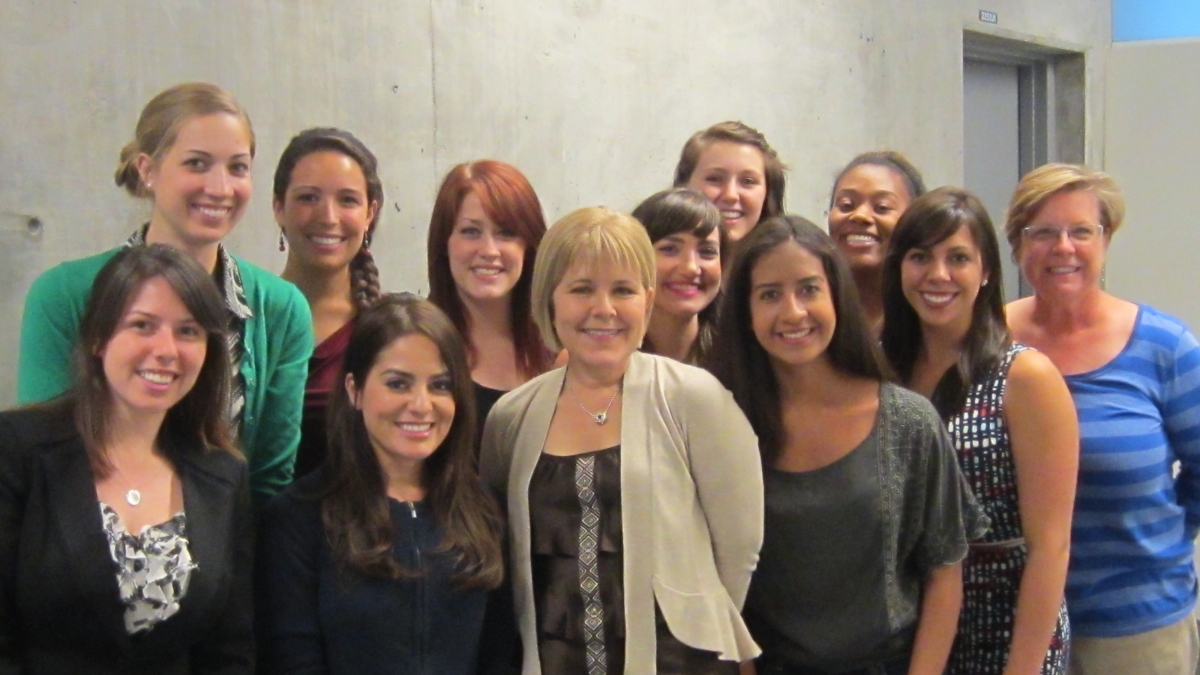ASU speech and hearing science students head to Africa with Hearing for Humanity

This week, Speech and Hearing Science students at Arizona State University will leave on a month-long humanitarian trip to Malawi, Africa, with Hearing for Humanity, a program founded by ASU in 2010. For the past three years, the Hearing for Humanity program has been sending Doctor of Audiology students, as well as Speech and Hearing Science undergraduate students, from the College of Health Solutions (CHS) to Africa to contribute to sustainable audiology care. This year, CHS is sending its largest team yet, comprised of two clinical audiologists, two faculty leaders and eleven graduate and undergraduate students.
Ingrid McBride, director of the audiology clinic on ASU’s Tempe campus, founded Hearing for Humanity and has been coordinating the program since. “I’ve witnessed firsthand the impact of hearing loss, the limited services available and the dire need for education, prevention and treatment of hearing loss in these developing countries,” said McBride. Inspired by her experience on the first trip, she says she strives to continue sharing ASU’s talent and knowledge every year from the esteemed audiology program with a community in need.
Providing access to an impoverished community
McBride says Malawi is an underserved community. High rates of preventable hearing loss in Malawi are due to lack of available care and individuals that aren’t aware of the symptoms. Hearing loss can occur due to genetics but more frequently results from diseases such as malaria, meningitis and ear infections, and the treatments that cause ototoxicity. These diseases may directly result in deafness, or it may be caused indirectly by the side effects of pharmaceutical treatments (quinine for malaria or Gentamicin for meningitis). Without proper screening and treatment, hearing loss will continue to pervade Malawi.
Last year, ASU’s Hearing for Humanity team sent seven students to Malawi to alleviate the burden of hearing loss by testing 496 patients and crafting 215 molds for hearing aids. This year, the students are looking forward to contributing even more on their five-week trip.
Excitement, anticipation felt as students prepare for trip
This student team has been preparing all year for their excursion. Their clinical preparation included contacting manufacturing companies for donations and creating training modules to teach local audiology students at the African Bible College. “Since we focus on sustainable care, we work alongside the two audiologists in Malawi and local students in audiology,” explained Emily Venskytis, a student in the audiology doctorate program. “I am eager not only to teach them what I know, but also to learn from them. I want to know what works best for the people in their community, and provide services so they benefit in the best way possible,” she continued.
Providing culturally sensitive care
Students will also be prepared for cultural immersion. They have been reading books, watching films and discussing how they will form culturally-sensitive relationships while in Africa. “I am most looking forward to the ability to provide hearing health care to people with an entirely different culture and a different worldview,” said Venskytis.
Some students, such as undergraduate Speech and Hearing Science major Sara Jensen, have already experienced African culture. “I studied abroad in Cape Town, South Africa, in 2008 and it really changed me as a person,” she said. “It really puts things into perspective and makes you cherish the things that matter most,” she said. McBride says the Hearing for Humanity trip will provide Jensen and the other undergraduates with a great opportunity to step into the clinical realm for training before some of her classmates. Doctorate students will also take advantage of the rare opportunity to supplement their clinical rotations. “This will give me a lot of contact hours and hands-on experience with many different disorders of the ear and hearing, some of which I may not see in the United States,” noted Venskytis.
The team will undoubtedly face challenges on their trip. “In Malawi, we will not have access to much of the technology that we are used to, and will have to utilize other means,” Venskytis said. “We will just have to be flexible with what we have and be prepared for any situation,” she said.
The Hearing for Humanity team leaves for Malawi May 31. Follow their journey on their blog, http://gailbelus.wordpress.com/.